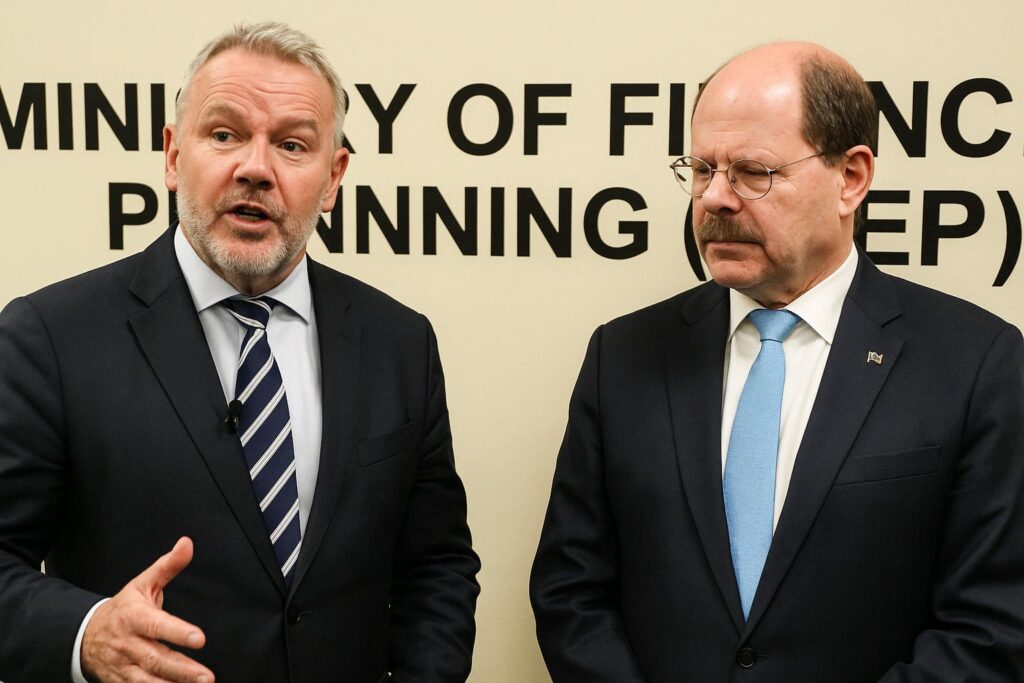Diplomats seek fiscal openness in Juba
South Sudan’s Finance Minister, Athiang Diing Athian, invited the British and Norwegian ambassadors to his Juba office on Thursday. The diplomats used the encounter to reiterate calls for clearer reporting on oil proceeds, wage payments and lingering arrears.
An economy tied to oil barrels
Crude accounts for more than 90 percent of state income, leaving public finances vulnerable to price swings and pipeline disruptions. Watchdogs regularly rank South Sudan among the most opaque fiscal environments, despite estimates that it also exports up to 40 tons of gold each year.
Oversight committee in spotlight
Outgoing co-chair Norway and incoming co-chair Britain see the Public Financial Management Oversight Committee as the lever for change. Ambassador Roar Haugsdal listed quarterly budget reports, a centralized accounting system and full disclosure of oil-backed loans as immediate benchmarks.
Shrinking aid, rising urgency
British envoy David Ashley warned that external assistance is tapering, raising the stakes for domestic resource management. He argued that every dollar must reach classrooms, clinics and barracks, a view the minister reportedly endorsed while acknowledging arrears still hamper regular salary disbursement.
Next steps toward fiscal clarity
Juba officials say a draft public finance bill will be tabled before parliament within weeks, aiming to unify revenue streams under one treasury account. Diplomats caution, however, that credibility will hinge on timely publication of data and the swift settlement of government wage backlogs.


